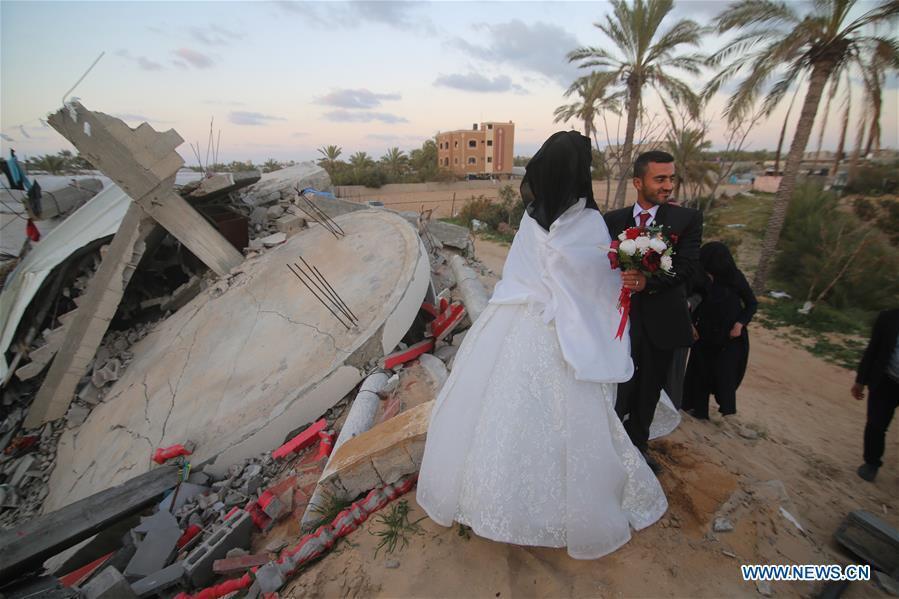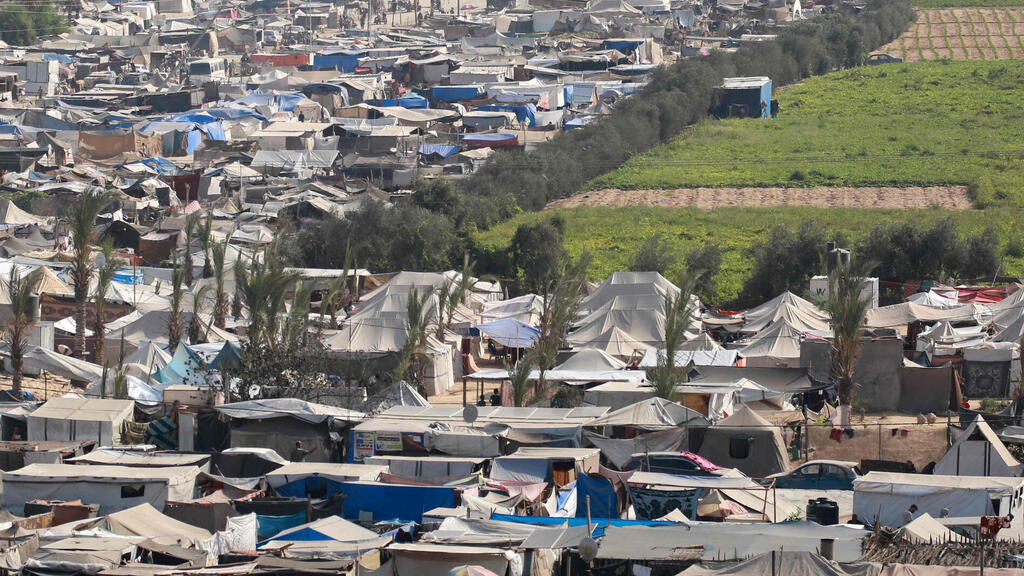Amid the turmoil of war and the dire conditions in the Gaza Strip, an unexpected trend has emerged: a surge in weddings. This increase isn't driven by romance but by the pragmatic need to register marriages to secure food coupons and assistance for newlyweds. According to sources in Gaza, once a couple is officially married, they "come off" their parents' accounts and begin receiving separate support.
Since the conflict began until last April, only 61 marriages were registered in Gaza and the northern Strip, even under challenging circumstances due to the war and significant infrastructure destruction in many areas. In contrast, prior to the war, about 5,000 weddings were documented in the same period.
Now, the situation has shifted dramatically, and the number of weddings is on the rise. "In one day, I registered 50 marriages at the Khan Yunis camp," a Gaza-based attorney told ynet. He is busy altering residents' family statuses and updating Hamas' Interior Ministry to manually register couples in the population registry.
"Today, getting married costs around $530, and you need to purchase a mattress and a tent," the attorney explained. "People are rushing to marry because it eases financial pressure on parents. Once registered as married, couples start receiving separate food coupons and assistance. Furthermore, after the war, they become eligible for a shared apartment. This pattern was seen in previous conflicts and tempts both couples and parents. Many relatives, including cousins, are rushing to marry even at 15, and others are taking second wives."
Couples have stopped waiting for the war to end. Under Islamic law, a "mahr" or dowry must be paid to the bride's family, and these amounts have also fluctuated due to the war. "In the northern Strip, there are fewer women, so those seeking to marry pay between $1,400 and $5,700, while in the southern camps, where there are more women, the payment is only about $215," the lawyer described.
Dr. Israa Saleh from Gaza shared on a podcast that captured the Arab world's attention that there are rooms or tents in Gaza for couples, where they engage in marital relations according to a waiting list. "The war dragged on, and people started accepting the situation. Those who postponed marriage and pregnancy now see no reason to delay, and in fact, more are marrying and having children despite the hardships," she said.
"I used to live in a comfortable place, and now everything has changed, and my gold is gone. We married against our will without joy," recounted Samah Al-Bayek, 19, one of the young women who married during the war. She was engaged to her cousin Wasim, five years her senior, and they had planned to celebrate their wedding last November.
Samah had to marry at this specific time because her father decided to ease the burden of their displacement after their home was bombed. "My father asked my fiancé to marry me because he couldn't bear the costs of my displacement and moving my belongings," she told a Palestinian media outlet. Now, she is in her third pregnancy, hoping it will be successful after two miscarriages.
According to Hamas’ Interior Ministry, before the war, there were, on average, 20,000 marriage registrations annually in the Gaza Strip.




